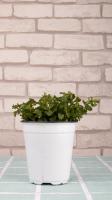Can I Feed My Plants Pool Water?
As the owner of a swimming pool, it’s only natural to look for ways to conserve water and make the most of what you have. One common question that many pool owners ask is whether or not they can use their pool water to feed their plants.
The Short Answer
The short answer to this question is no. Pool water is not suitable for plant life for several reasons.
Chlorine Contamination
The first reason why pool water cannot be used to feed plants is due to chlorine contamination. Chlorine is added to pool water to prevent the growth of harmful bacteria and algae. While this is great for keeping your pool clean, it can be deadly to plants.
When chlorine is absorbed by plants, it can cause damage to the leaves and roots, reducing their ability to grow and thrive. Even if the chlorine levels in your pool water are low, it’s better to err on the side of caution and avoid using it to feed your plants.
Potential Hard Water Problems
Another issue with using pool water to feed your plants is that it can be high in minerals and hard water. Hard water contains high levels of calcium, magnesium, and other minerals that can accumulate in soil over time.
This can lead to a condition known as soil salinity, where the salt concentration in the soil is too high for plants to tolerate. Over time, this can cause your plants to wilt and die, leaving you with nothing but dead vegetation.
Alternatives to Pool Water
While pool water may not be suitable for plant life, there are many other alternatives that you can use to keep your plants healthy and hydrated.
One of the best options is to collect rainwater in a barrel or container. Rainwater is natural, chemical-free, and contains all the essential nutrients that plants need to thrive.
You can also filter tap water and use it to water your plants. While tap water is often high in chlorine, allowing it to sit for 24 hours will allow the chlorine to evaporate, making it safe for your plants.
Conclusion
When it comes to feeding your plants, it’s important to use clean, chemical-free water that is free from contaminants. While pool water may seem like a convenient option, the risks of contamination and hard water problems make it unsuitable for plant life.
By using alternatives such as rainwater or filtered tap water, you can give your plants the solid foundation they need to grow and thrive.

 how many times do yo...
how many times do yo... how many planted tre...
how many planted tre... how many pine trees ...
how many pine trees ... how many pecan trees...
how many pecan trees... how many plants comp...
how many plants comp... how many plants can ...
how many plants can ... how many plants and ...
how many plants and ... how many pepper plan...
how many pepper plan...
































